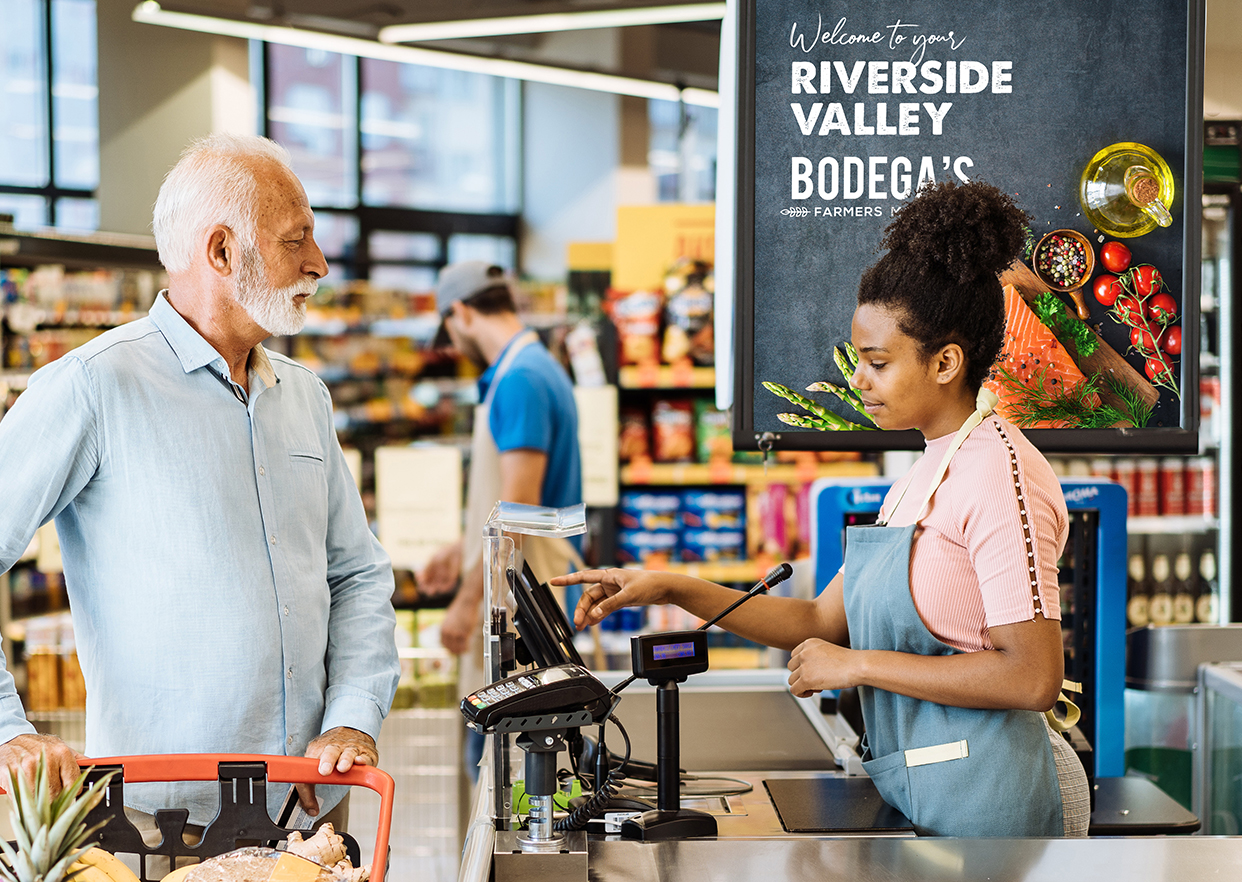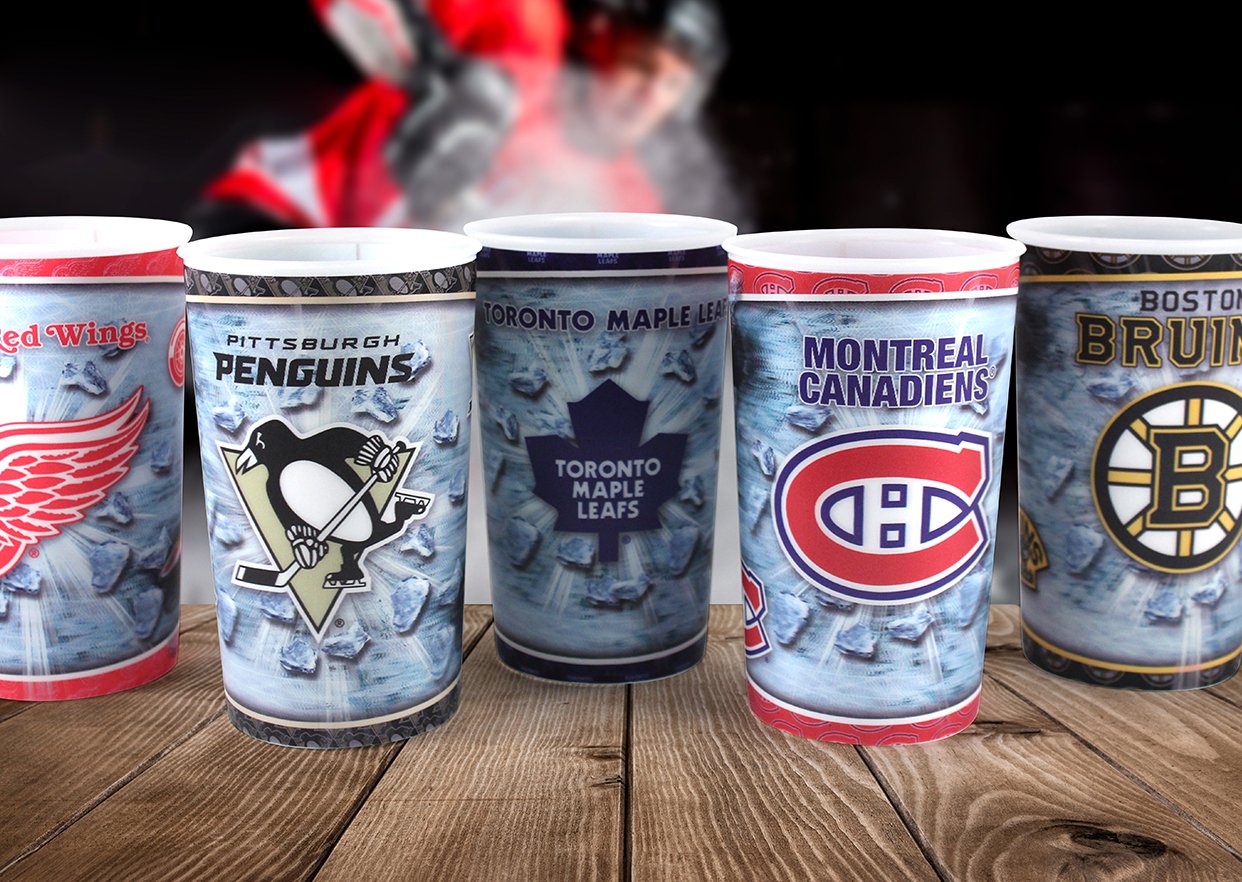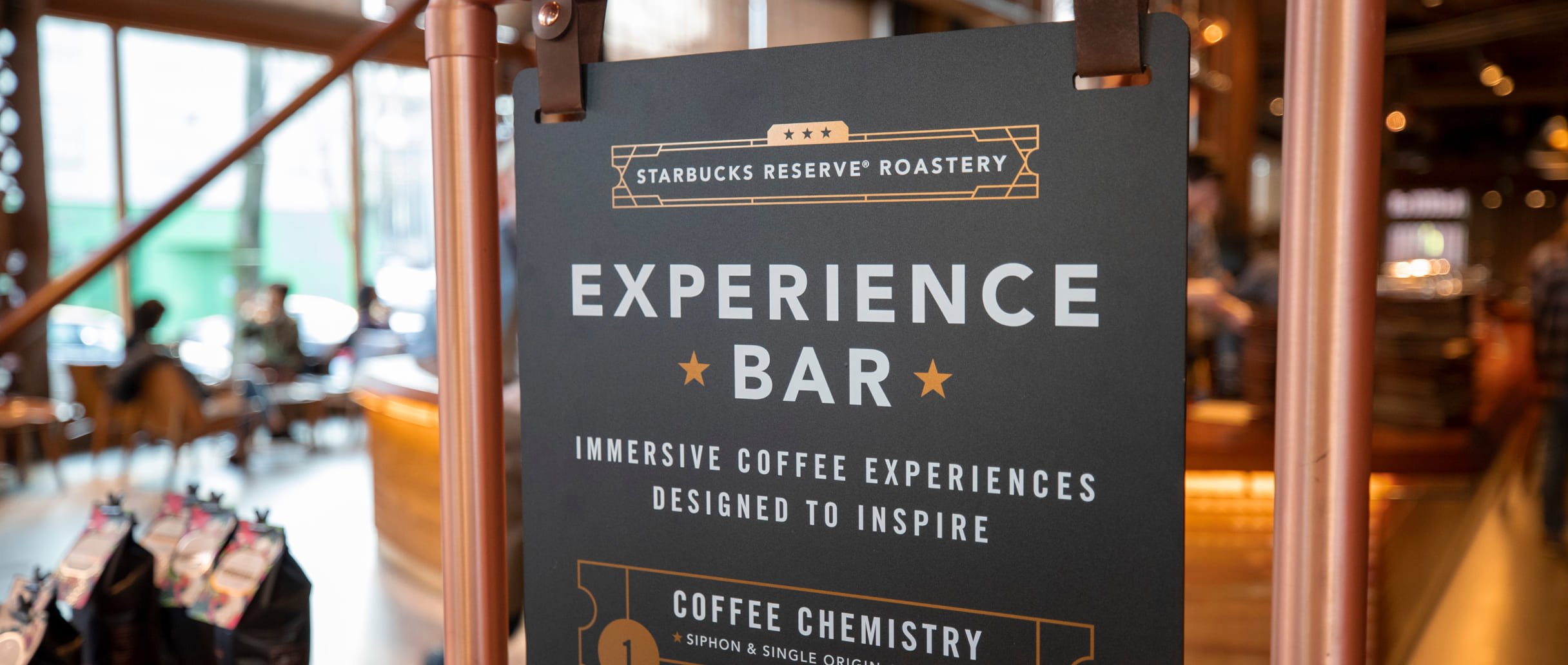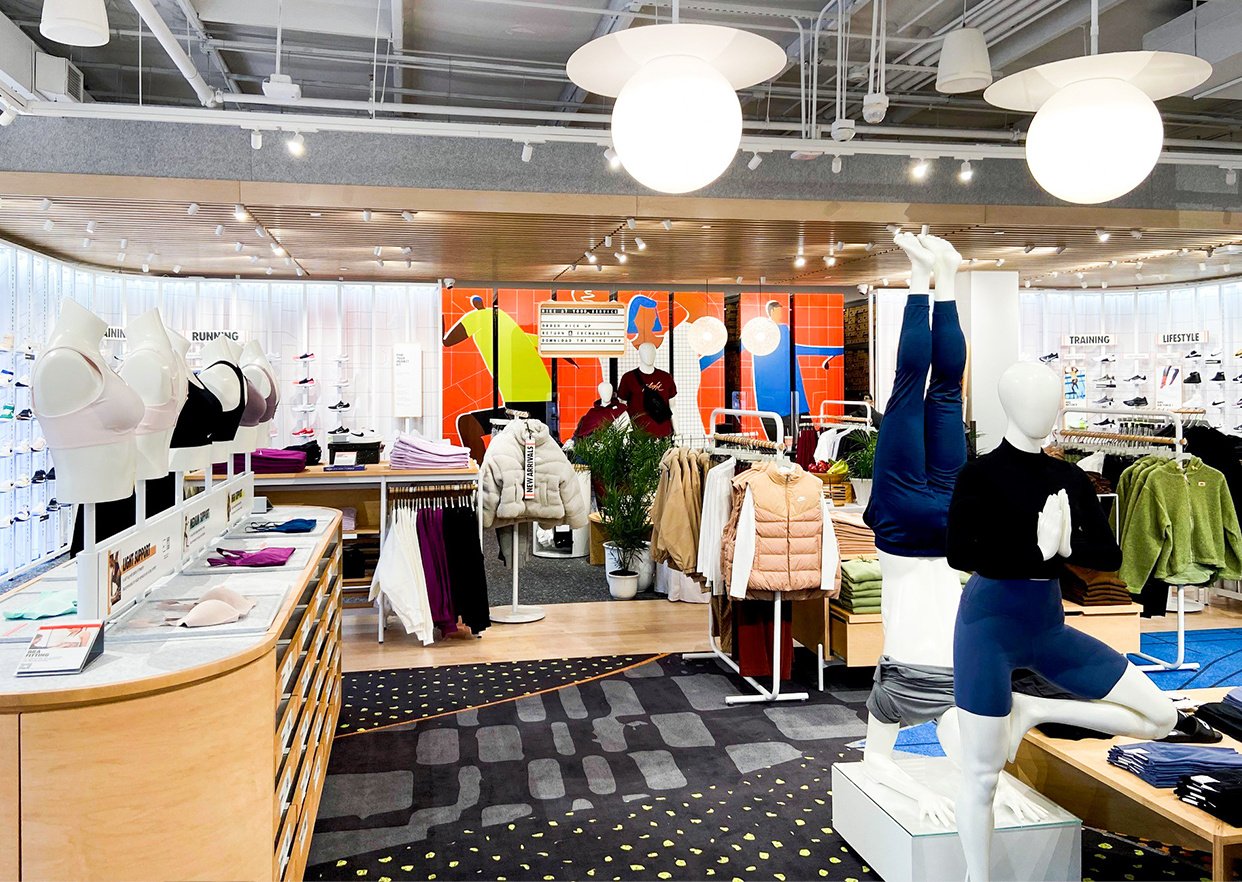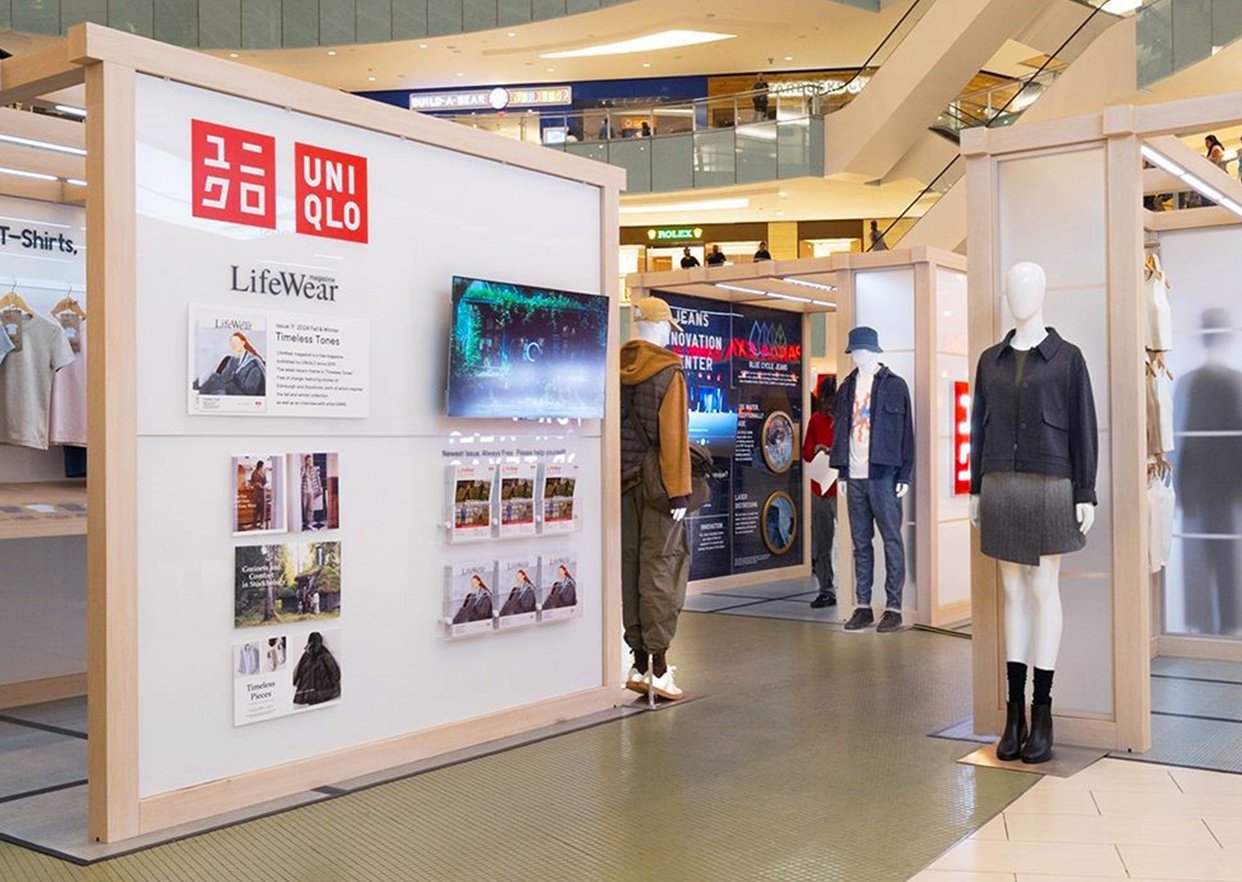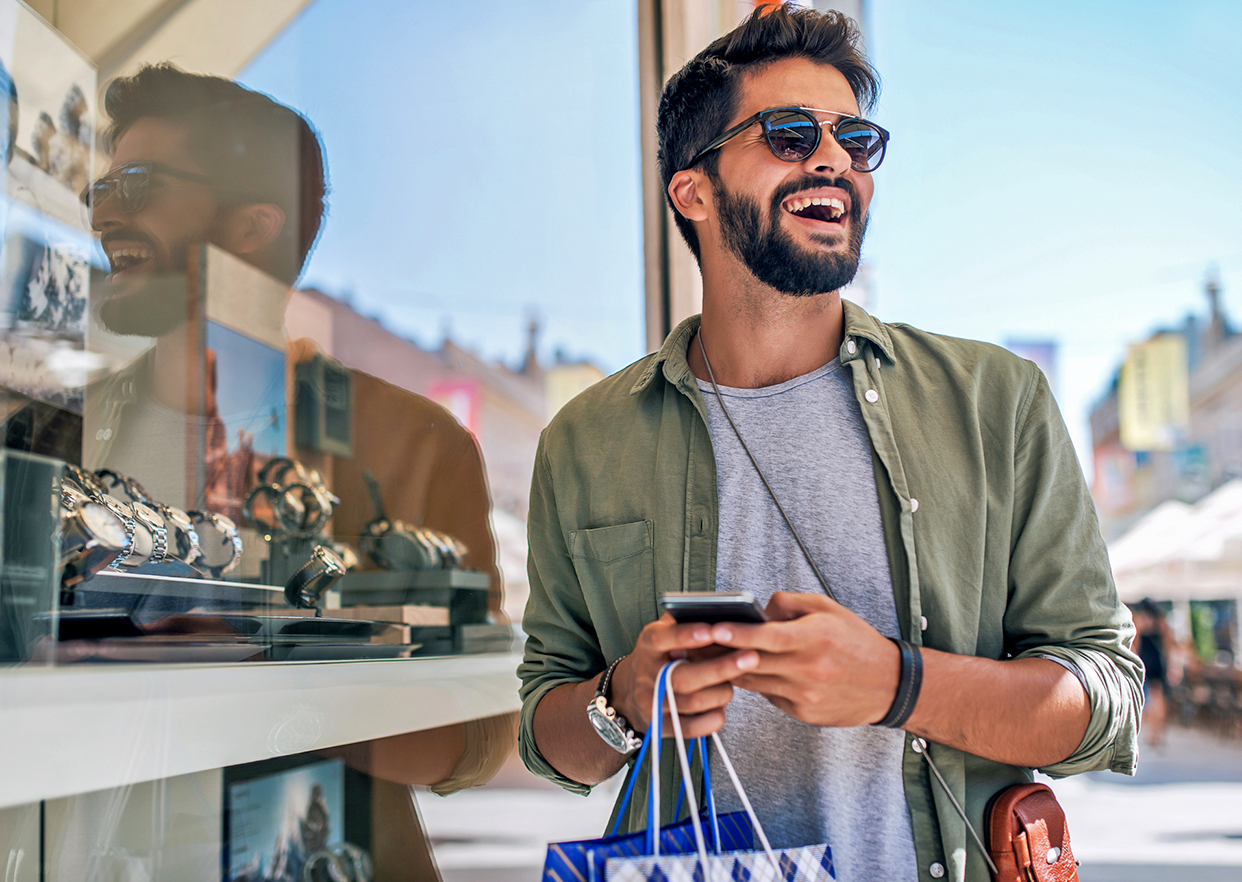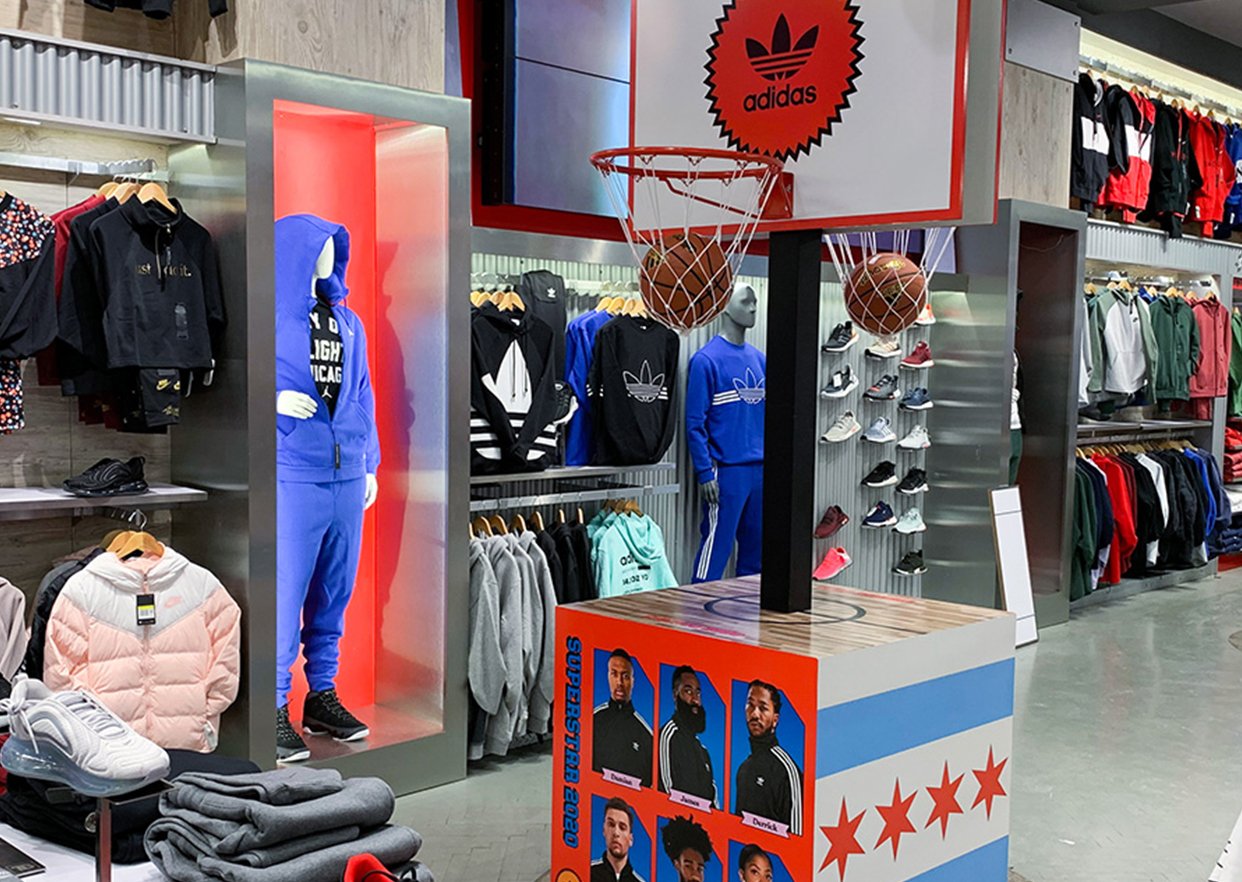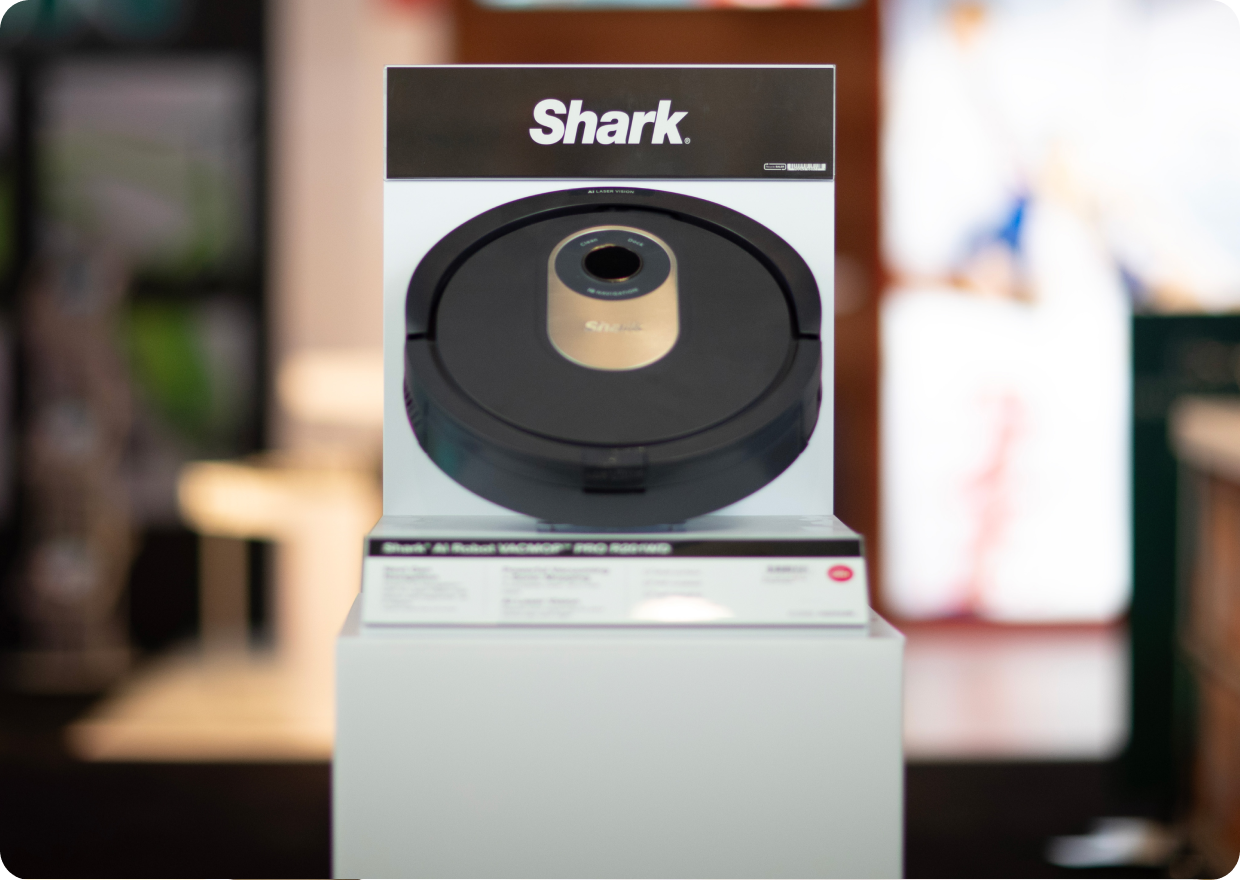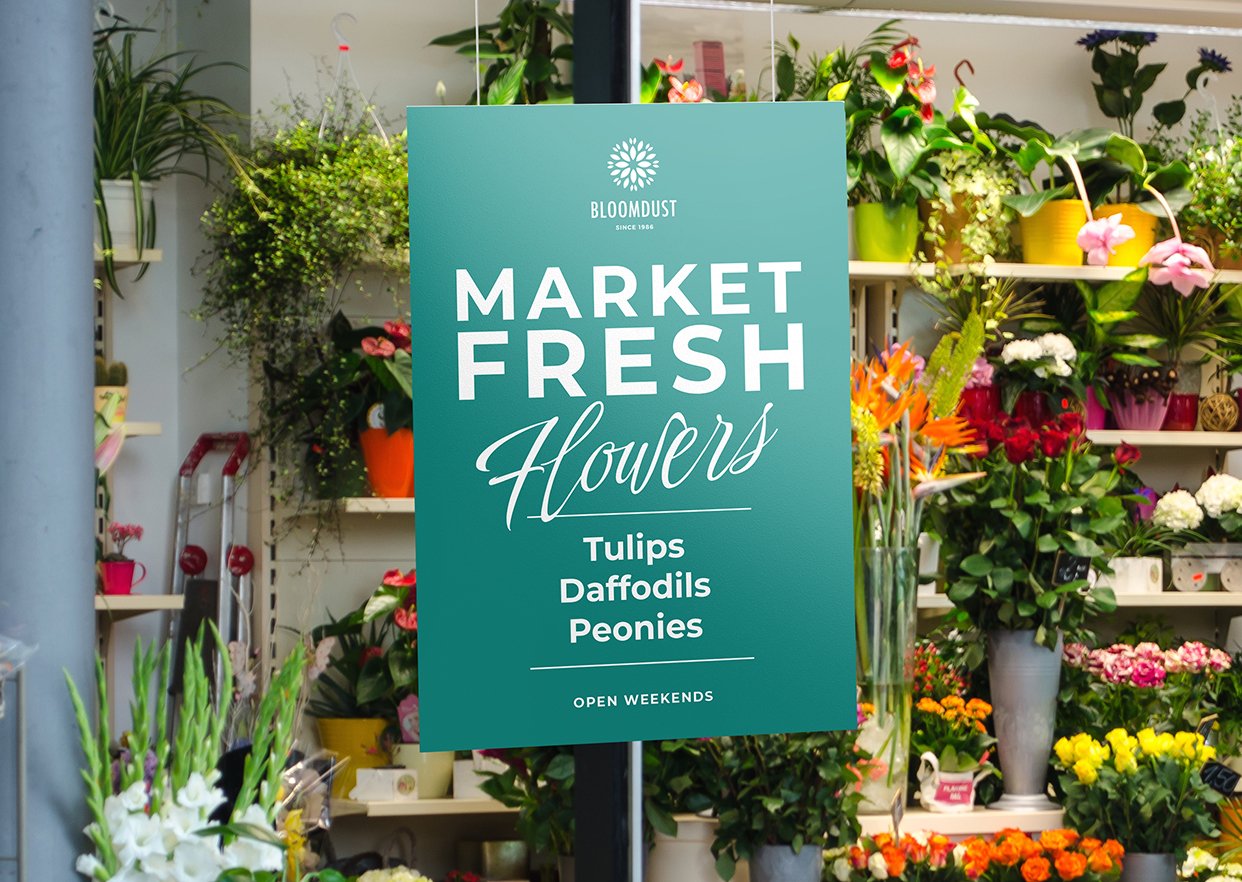Loyalty marketing programs have grown in popularity as retailers have doubled down on the value of existing customer relationships – and with good reason. The Harvard Business Review notes that acquiring a new customer is up to 25 times more expensive than retaining an existing one.
However, this is only a small part of the larger story. Researchers at PWC provide a few startling statistics that should give retail marketers pause:
Customer Loyalty Is A Fragile Thing
According to PWC, 32% of consumers worldwide would walk away from a brand and stop doing business with them after just one bad experience. While Americans are somewhat more brand loyal overall, 59% said several bad experiences would be enough for them to sever ties with a brand – forever.
Customer Experience Matters More Than Advertising
While price and product quality still lead the way, 73% of consumers now say the customer experience is an important factor to their purchase decisions. In fact, 65% of Americans say that a positive customer experience is more influential than top-notch advertising.
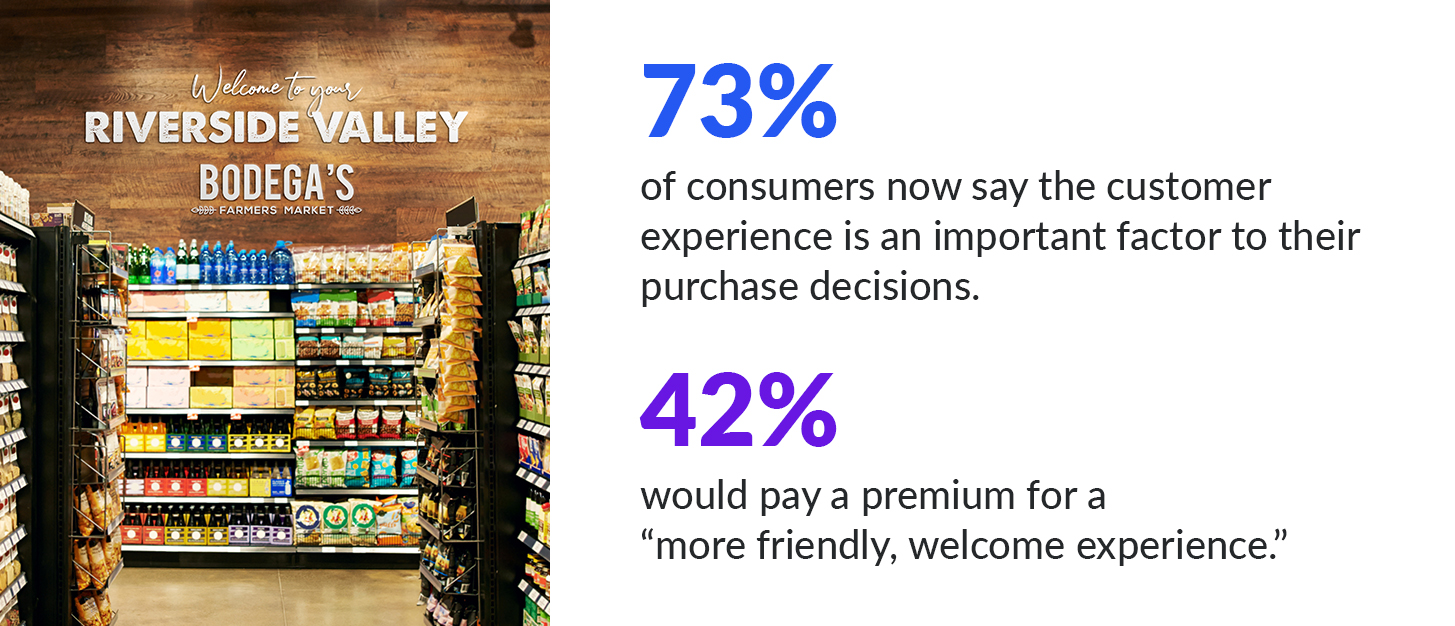 Customer Experience Commands A Price Premium
Customer Experience Commands A Price Premium
More than half of American consumers feel that the customer experience offered by most companies needs improvement – and they are willing to put their money where their collective mouths are. While 43% said they would gladly pay more for greater convenience, 42% would pay a premium for a “more friendly, welcome experience.”
There are two key takeaways for retailers. First, all the loyalty programs in the world won’t help you retain customers and deepen relationships if the in-store experience is lacking. Second, there are things directly within your control that can be done to create that convenient, friendly and welcoming experience that retail shoppers crave.
Experiential Graphics In Retailing
As defined by the Society for Experiential Graphic Design, experiential graphics combine typography, color, imagery, form, technology and content to create environments that communicate. In the context of retailing, experiential graphics can be used to immerse the customer in your brand from the moment they enter the store. Signage, interior décor, lighting, marketing messages and how merchandise is displayed all work together to create an experience that communicates with the customer about your brand.The question is, what exactly are you communicating? Are your retail graphics helping to create the convenient, friendly and welcoming experience described above – the type of experience that commands a price premium? Or, are they weakening the customer’s relationship with your brand and giving them license to walk away? Here are three things you can do to ensure that you are using experiential graphics in a retail environment to communicate all the things that make your brand special.
#1: Customize and localize retail messaging
Nike. Apple. Starbucks. Target. Best Buy. All are iconic retail brands and you know exactly what type of experience you will encounter when you walk through the front door. The signage, colors, retail fixtures and displays are all similar from store to store. Therein lies the power of a great brand.
However, that type of brand experience is magnified when the essence of the brand is customized for the individual store location. Now, imagine these types of experiences:
- A Nike store in Denver that has signage, displays, imagery and merchandise that translate the “Just Do It” mantra to the Rocky Mountain setting.
- A Starbucks store that incorporates local farm-fresh ingredients – and has experiential graphics to match.
- A Target store near a college campus that immerses customers in the colors and school spirit of their neighbor.
In each case, the underlying brand execution would be the same as in every store nationwide. However, by customizing or regionalizing the experiential graphics to the unique setting of a specific store, there’s an opportunity to create a deeper brand connection and a more memorable customer experience.
#2: Keep experiential graphics fresh
Even when regional customization isn’t relevant – such as for a small local retailer – it’s still necessary to keep experiential graphics fresh by changing them often. Repeat customers to your store will soon develop “display fatigue” and begin to ignore signage or displays that have been in place for an extended period of time. According to the NPD Group, window displays alone are shown to influence 24% of retail purchases. Let those displays stagnate and your sales are sure to follow.
The question is, how often is often enough? For some types of retail environments, daily changes to experiential graphics are necessary to catch the eye of passers-by. For others, monthly may be good enough. However, no matter what frequency you decide is right, there are things you can do to streamline the process.
For example, retail display fixtures that enable rapid change-outs are gaining popularity. Magnetic signage can enable the same physical display fixture to be used for years while signage and brand messaging are changed out repeatedly. They also save precious time for in-store employees, freeing them up to focus on serving customers. These types of reusable, reconfigurable display fixtures are a faster, greener and more cost-effective way to keep experiential graphics fresh in a retail setting.
#3: Act with omnichannel in mind
Consumers are far more sophisticated than they were just a decade ago. There’s now an expectation that retailers provide a seamless brand experience across all touchpoints – from brick-and-mortar stores to websites, advertising, direct marketing contacts, customer service interactions and more. Experiential graphics are part of this omnichannel retail experience.
Taylor: Creating Experiential Graphics for Retail
Every piece of experiential graphics used in a retail setting is an opportunity to build upon that omnichannel feel. The same brand messaging, colors, aesthetics and design themes should be applied to each element:
- Wall, window and floor graphics
- Window displays
- Fixture toppers
- Signage panels
- Carpeting, furniture and more
Lastly, don’t forget interactive devices. Everything from custom kiosks and mobile apps to QR codes that link to digital content can be designed into your experiential graphics “suite,” creating that seamless omnichannel experience.
Taylor is a leading provider of experiential graphics for retailers nationwide. We create all of the types of custom signs and graphics listed above, including complex 2D and 3D retail display fixtures and magnetic signage systems that enable easy change-outs. While many of our competitors utilize a single production location, Taylor has multiple graphics production facilities from coast to coast – accelerating speed to market and slashing the logistical costs associated with warehousing and shipping.
However, what most sets Taylor apart is the end-to-end nature of the solutions we provide to retailers. We work directly with retailers from initial creative concepting through prototyping, fabrication, production and final installation in each store. Everything necessary to create that convenient, friendly and welcoming in-store experience is available through a single marketing partner.
See for yourself how Taylor uses experiential graphics to help retailers harness the emotion behind every purchase. Contact a Taylor representative to learn more.
